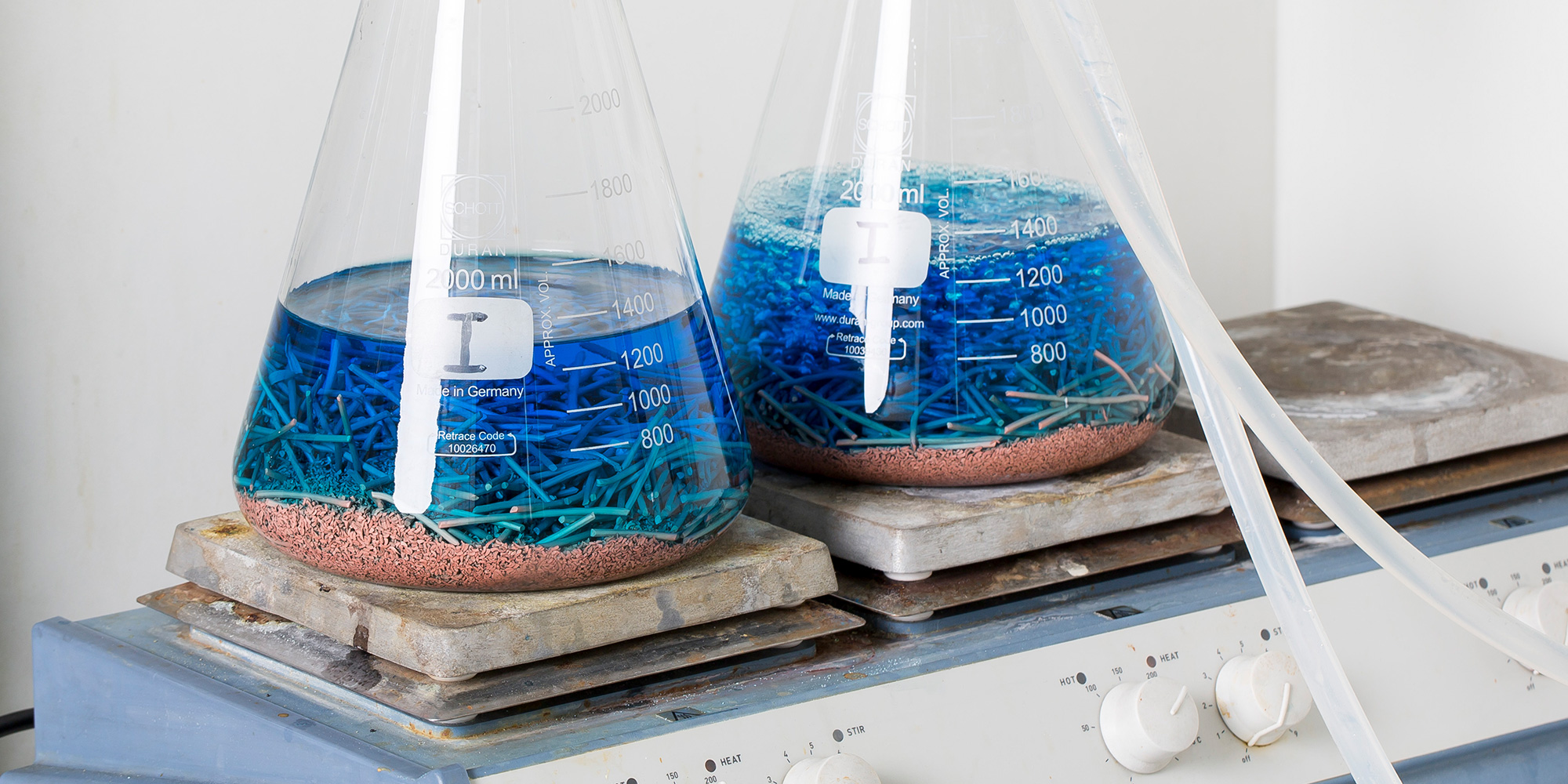NF EN ISO 7539-2 Stress Corrosion Testing
The NF EN ISO 7539-2 standard provides a stringent method to assess the susceptibility of materials to stress corrosion cracking (SCC) under specific laboratory conditions. This is particularly critical in the oil & gas sector, where prolonged exposure to corrosive environments can lead to catastrophic failures with significant financial and safety implications.
Stress Corrosion Cracking occurs when a material exposed to a particular combination of environmental factors and tensile stress undergoes microscopic cracking, leading to potential failure. The test outlined in NF EN ISO 7539-2 is designed to simulate these conditions to predict the likelihood of SCC occurring under similar real-world scenarios.
The test involves subjecting a specimen to a defined stress level while simultaneously exposing it to an environment that promotes corrosion. Specimens are typically fasteners, welds, or other critical components used in oil & gas infrastructure. The stress is applied using mechanical means such as preload or bending. Environmental conditions can vary depending on the material and expected service conditions but often include exposure to chloride-containing solutions at elevated temperatures.
The testing process begins with meticulous specimen preparation. Specimens must be free from surface contamination, cracks, or other defects that could influence test results. The specimens are then clamped into a holder designed to apply controlled stress levels. Once in place, they are immersed in the corrosive environment for an extended period.
After exposure, the specimens are examined visually and/or using non-destructive testing (NDT) techniques such as ultrasonic testing or radiography to identify any signs of cracking. The presence of cracks is confirmed through cross-sectional analysis if necessary. Reporting follows strict guidelines outlined in the standard, detailing environmental conditions, stress levels, and any observed cracks.
The results from NF EN ISO 7539-2 are invaluable for quality managers and compliance officers as they provide a clear picture of material integrity under specific conditions. This information is crucial for R&D engineers to design more durable components and for procurement teams to source materials that meet stringent requirements.
Why It Matters
The importance of stress corrosion testing in the oil & gas sector cannot be overstated. The harsh environments encountered by equipment, pipelines, and structures can lead to SCC, resulting in premature failure. This not only increases operational costs but also poses significant safety risks.
By identifying materials that are prone to SCC early on, stakeholders can implement preventive measures such as selecting more resistant alloys or applying protective coatings. NF EN ISO 7539-2 ensures compliance with international standards, enhancing the credibility of test results and fostering trust among industry partners.
The testing process is not just about identifying flaws; it’s also a means to understand material behavior under stress and corrosion. This knowledge is pivotal for improving the design and lifecycle management of critical assets in the oil & gas sector.
Benefits
The benefits of NF EN ISO 7539-2 stress corrosion testing are multifaceted, extending beyond compliance to operational excellence. Here’s why it matters:
- Enhanced Material Integrity: By identifying SCC-prone materials early, stakeholders can implement corrective measures, improving the reliability and longevity of critical components.
- Cost Savings: Preventive maintenance and design improvements can lead to significant cost savings by reducing the risk of catastrophic failures and associated repair costs.
- Safety Improvement: Ensuring material integrity reduces the likelihood of accidents, protecting personnel and the environment.
- Regulatory Compliance: Compliance with international standards enhances credibility and trust among stakeholders.
- Innovation and Design: Insights gained from testing can drive innovation in materials science and engineering practices.
The test results also provide valuable data for continuous improvement efforts, ensuring that the industry stays ahead of emerging challenges.
Industry Applications
| Application | Description |
|---|---|
| Pipeline Integrity Testing | Evaluating the integrity of pipeline welds and fasteners under corrosive conditions. |
| Valve and Fitting Inspection | Ensuring that critical components such as valves and fittings are resistant to SCC in harsh environments. |
| Pump Assembly Evaluation | Testing the durability of pump assemblies used in offshore oil platforms under stress and corrosion. |
| Tank Liner Assessment | Evaluating the resistance of tank liners to chloride-induced SCC in storage facilities. |
The NF EN ISO 7539-2 standard is widely used across various sectors within the oil & gas industry, including onshore and offshore operations. Its application ensures that critical components are designed and manufactured to withstand harsh environmental conditions, thereby minimizing operational risks.





